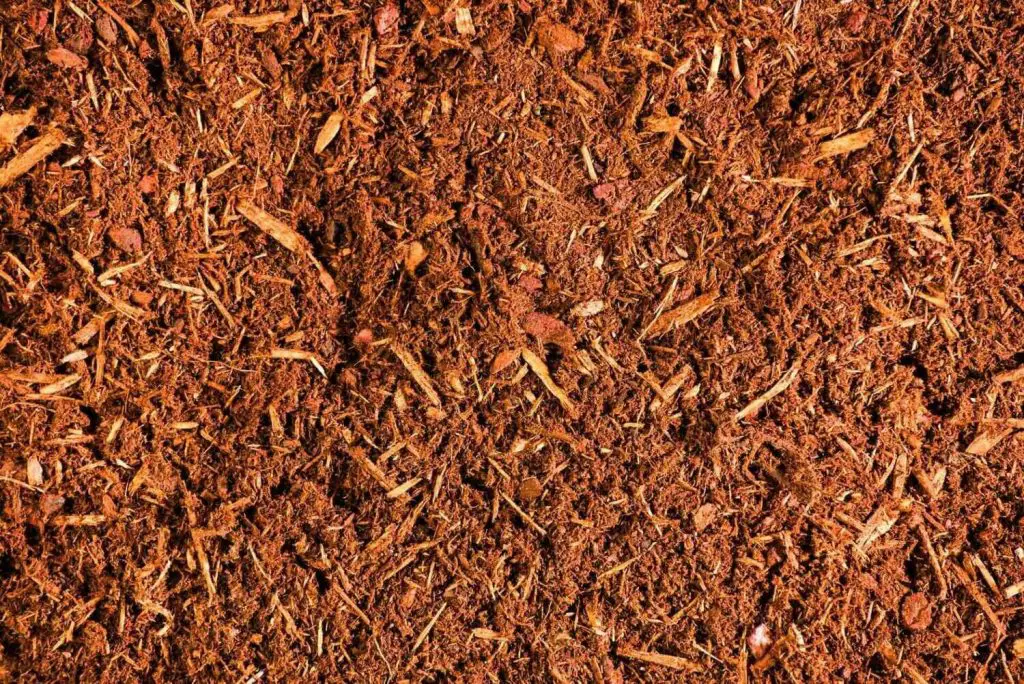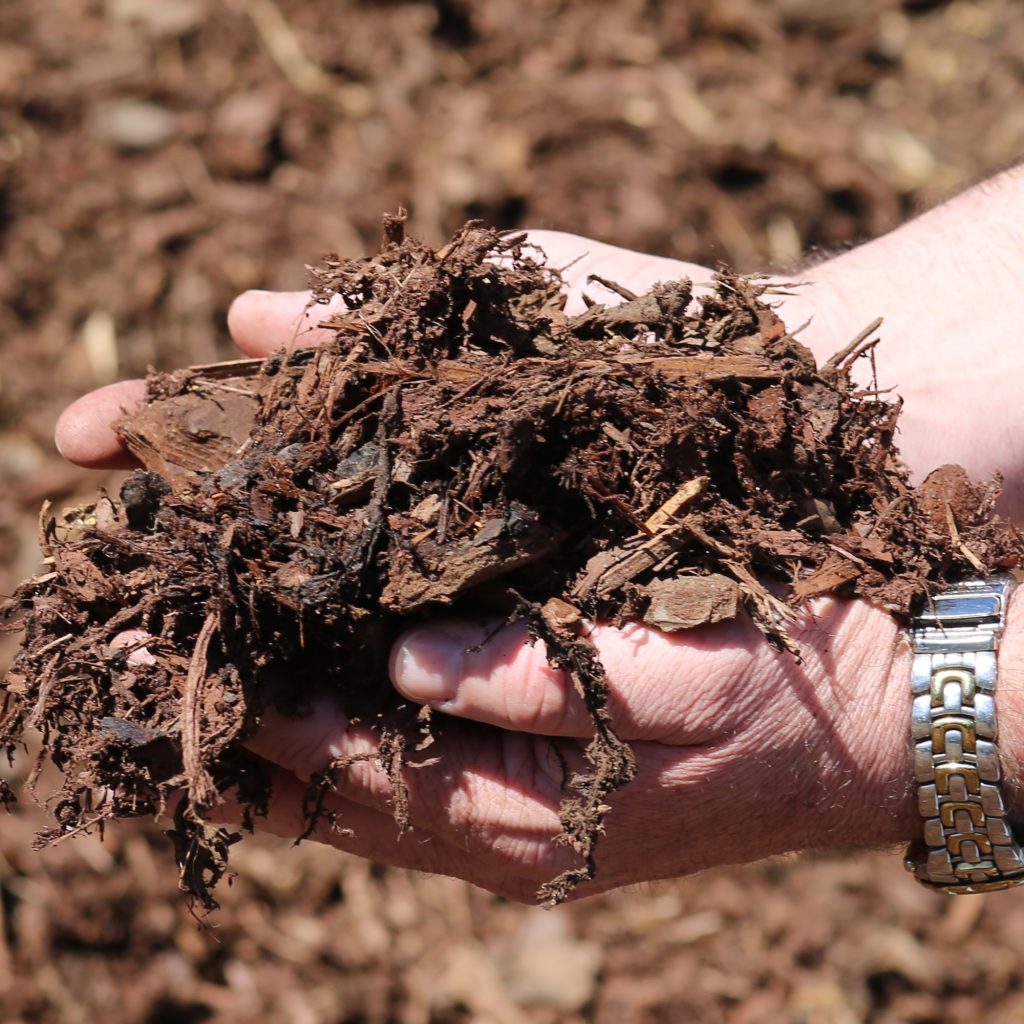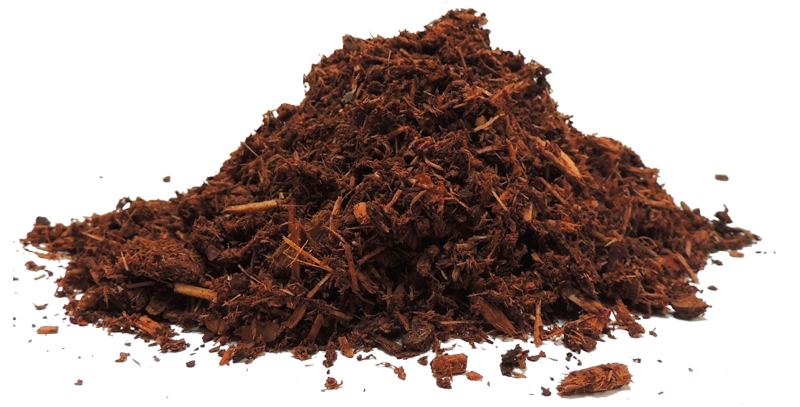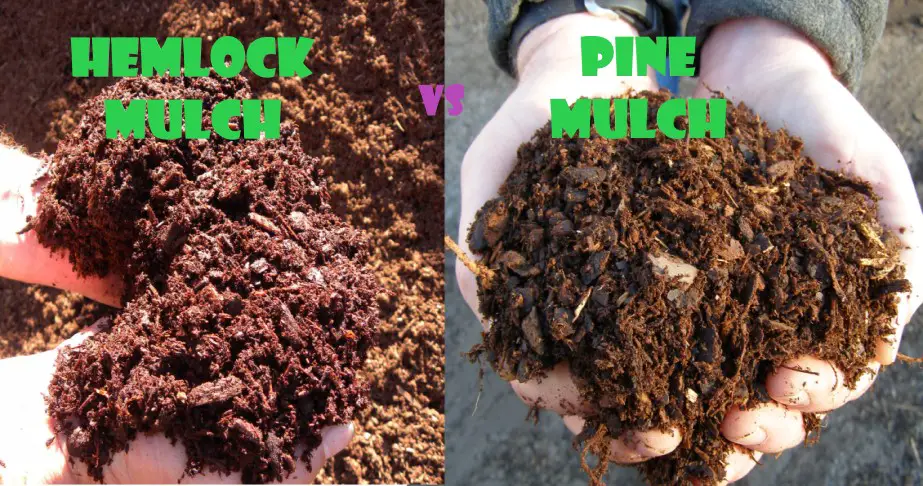Mulching plays a vital role in maintaining healthy gardens and landscapes.
It’s like a protective blanket that nurtures the soil, preserves moisture, and keeps unwanted weeds at bay.
A well-mulched garden not only thrives but also becomes a picturesque haven that enchants any beholder.
As you embark on the quest to find the perfect mulch for your gardening endeavors, you’ll encounter a multitude of options.
Two common choices are hemlock and pine. Let’s explore the distinct qualities and advantages of each.
Hemlock Mulch: The Rustic Elegance
Hemlock mulch stands out with its unique characteristics and properties that can add a touch of rustic elegance to your garden.
Its appearance and texture are distinct, with a rich reddish-brown color and a coarse yet fibrous texture.
One of the standout features of hemlock mulch is its pleasant aroma, which can bring a refreshing scent to your garden.
However, the scent can be overpowering for some individuals.

Pros
- Effective weed suppression
Hemlock mulch forms a natural barrier that inhibits weed growth, reducing the need for frequent maintenance.
- Moisture retention
The dense structure of the mulch helps retain moisture in the soil, reducing watering frequency and preventing evaporation.
- Pest repellent properties
The mulch acts as a deterrent for insects and small animals, helping to protect your plants from pests.
Cons
- Higher cost
It can be pricier compared to other mulch options, requiring consideration of budget constraints.
- Potential allergic reactions
Individuals sensitive to certain plant materials may experience allergic reactions when exposed to hemlock mulch. Caution should be exercised when using it.
- Environmental impact
The sourcing of hemlock mulch may not align with sustainable practices, requiring awareness of its potential environmental impact.
Related: Hemlock vs Fir Mulch: Ultimate Comparison Guide
Pine Mulch: Versatile and Budget-Friendly
Pine mulch, known for its versatility and affordability, is a popular choice among gardeners.
It exhibits a lighter color, ranging from a pale yellow to a rich golden hue, and has a finer texture compared to hemlock mulch.
Like hemlock, pine mulch carries a distinct fragrance, often evoking memories of serene forest landscapes.

Pros
- Cost-effectiveness
Pine mulch is an economical option, making it ideal for covering larger areas without breaking the budget.
- Soil enrichment
As the mulch decomposes, it contributes to soil enrichment by releasing nutrients gradually, promoting healthy plant growth.
- Pest and fungi repellent
Natural compounds found in the mulch help repel certain pests and fungi, protecting your plants.
Cons
- Soil acidification
The decomposition process of pine mulch can slightly acidify the soil over time. Monitoring the pH levels of the soil is important, especially for plants with specific pH requirements.
- Termite attraction
Pine mulch may attract termites, which can pose a risk, particularly if used near wooden structures. Caution should be exercised to prevent termite infestations.
- Nutrient deficiencies for some plants
Certain plants may be sensitive to its nutrient composition, potentially leading to nutrient deficiencies if additional supplementation is not provided.
Careful consideration of plant needs is necessary when using this mulch.
Related: Top 8 Mulches for Citrus Trees in Pots
Hemlock vs. Pine Mulch: Application and Use Cases
Consider these specific application scenarios to determine which option is better suited for your needs.

Landscaping Appeal
- Hemlock Mulch
Hemlock mulch is favored for its natural and rustic appeal in landscaping projects. It can add a touch of rustic elegance to garden beds and pathways.
- Pine Mulch
Pine mulch complements a broader range of aesthetics, offering versatility in landscaping designs. It can be used to create both formal and informal looks.
Plant-Specific Considerations
- Pine Mulch
It’s slightly acidic, making it suitable for acid-loving plants such as azaleas, rhododendrons, and blueberries. It can help create an optimal growing environment for these plants.
- Hemlock Mulch
While not specifically known for its acidity, hemlock mulch can still benefit acid-loving plants as it retains moisture and provides weed suppression.
Pest Repellency
- Hemlock Mulch
It’s known for its pest-repellent properties, making it a good choice for vegetable gardens. It acts as a natural deterrent for insects and small animals, helping to protect your crops.
- Pine Mulch
This also has natural compounds that can repel certain pests, providing some level of protection for vegetable gardens.
Regional Preferences and Availability
Regional considerations can influence your decision.
Certain mulch options may be more readily accessible in different areas, making them a popular choice among local gardeners.
Related: Gorilla Hair Mulch Pros and Cons
Hemlock vs. Pine Mulch: Frequently Asked Questions (FAQ)
Here are some questions and answers to help you in your decision-making.
Which mulch is better for vegetable gardens?
Both hemlock and pine mulch can be suitable for vegetable gardens.
However, pine mulch may be more beneficial for vegetable gardens due to its affordability, soil enrichment properties, and natural pest-repellent qualities.
Some vegetables, such as tomatoes and peppers, tend to prefer slightly acidic soil, which can be provided by pine mulch.
Can hemlock or pine mulch be used around trees?
Yes, both options can be used around trees.
Mulching around trees helps retain moisture, regulate soil temperature, and suppress weed growth.
When applying mulch around trees, create a mulch ring, leaving a gap around the base of the tree trunk to prevent moisture accumulation and potential rot.
Is one mulch more environmentally friendly than the other?
Both hemlock and pine mulch can be considered environmentally friendly, but it depends on various factors such as sourcing and production practices.
To ensure environmental friendliness, look for mulch products that are sourced sustainably and produced using environmentally conscious methods.
Consider certifications like Forest Stewardship Council (FSC) or inquire with local suppliers about their sourcing practices.
Can I use hemlock or pine mulch for playgrounds or pet areas?
It’s generally not recommended to use them for playgrounds or pet areas.
Hemlock mulch can potentially cause allergic reactions in some individuals, and pine mulch may have sharp splinters or pieces that could pose a safety risk.
For playgrounds, consider using certified playground mulch made from materials specifically designed for safety and impact absorption.
For pet areas, opt for pet-friendly mulch options, such as shredded rubber or cocoa shell mulch (in moderation, as cocoa shell mulch may be toxic to pets if ingested).
Related
- Best Gravels to Walk on Bare Feet
- 10 Best Mulch for Wet Areas
- Top 10 Wholesale Mulch Suppliers
- Top 7 Disadvantages of Decomposed Granite
- Gorilla Hair Mulch Pros and Cons
- Best Mulch for Perennials
- Grass Mulching Pros and Cons
- Hemlock vs Fir Mulch: A Comprehensive Comparison Guide
- Is Cedar Mulch Good for Fruit Trees? Yes, here’s why
- Oak Mulch Pros and Cons (Benefits & Drawbacks)
- Is Straw Good Mulch for Fruit Trees? Yes, because…


